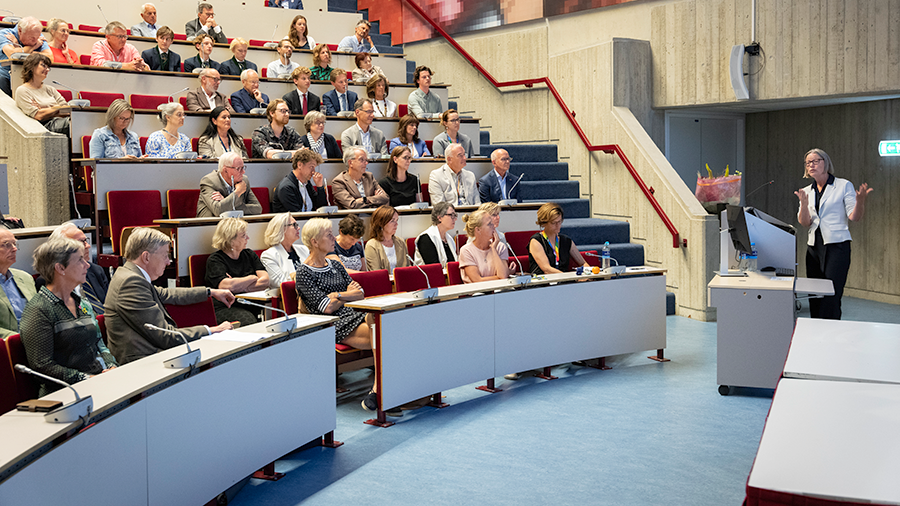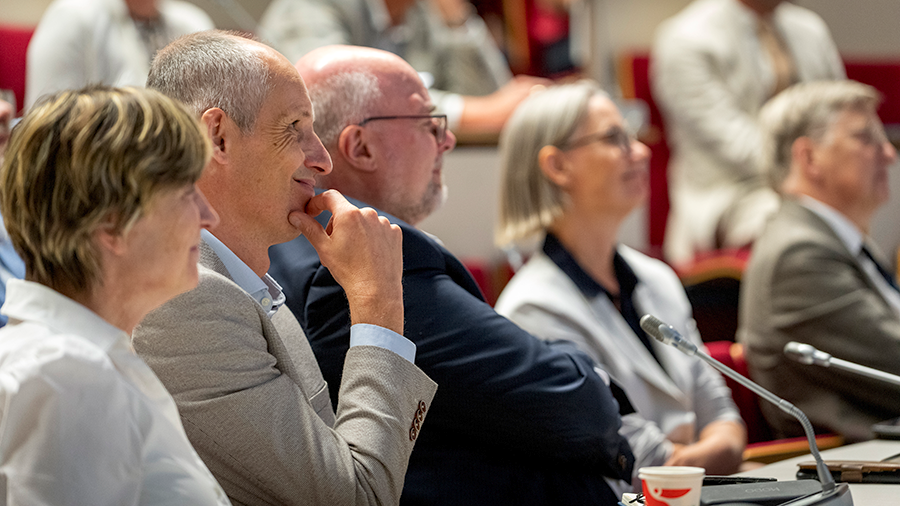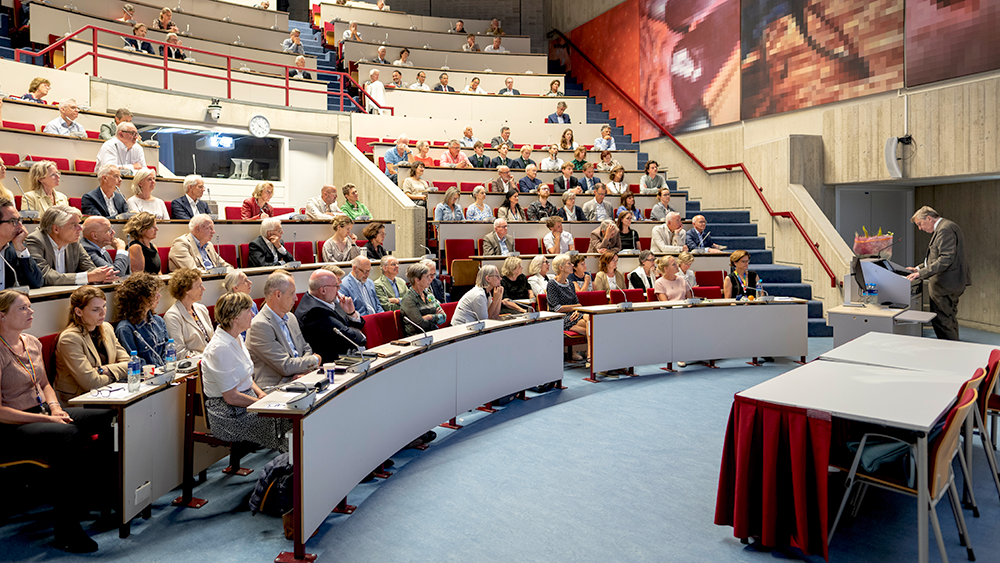
Symposium honouring departing LUMC Dean Pancras Hogendoorn
Pancras Hogendoorn bade farewell as Dean of Medicine and Vice-Chairman of the LUMC Board of Directors with a symposium at the LUMC on healthcare, research, teaching, collaboration and the future of university medical centres.
In a large lecture hall at the LUMC, Hogendoorn and the many guests present were addressed by professors Martine de Vries, Jet Bussemaker, Meta Roestenburg and Christine Mummery about topics including internationalisation in education and patient care and the need for collaboration with industry for biomedical and clinical innovation.
Ties between LUMC and university
Rector Magnificus Hester Bijl spoke about the ties between the LUMC and university, which are not always a given. The two are inextricably linked. ‘But there are quite some barriers: you can’t even do something as simple as look up each other’s email addresses. You don’t meet people by chance. That’s something we need to work on in the future.’
Despite these barriers, the collaboration brings about much good, such as the FLOW gravity project. Here researchers from the LUMC and the Leiden Institute of Chemistry are exploring how cells check proteins, which will help improve our understanding of diseases such as Alzheimer’s, Parkinson’s and cystic fibrosis.
Health Campus The Hague
Another important collaboration is Health Campus The Hague, where all the faculties, the LUMC and partners work together on societal themes such as health and prevention. Hogendoorn also called the campus a success in his leaving speech, in addition to underscoring the importance of innovation. ‘That consistent line of innovation, a bit of patience and making choices has brought us Campus The Hague and leadership in regenerative medicine and NecstGen [pharmaceutical lab in Leiden, Ed,].’
-

Hester Bijl spoke about the relationship between the LUMC and the university. -

The entire Executive Board was present. -

Pancras Hogendoorn gives his leaving speech.
Crises and change
In his over 11 years as Dean, Hogendoorn experienced several crises, such as a teaching crisis when he took office, the Covid crisis and the crisis surrounding paediatric cardiac surgery that eventually was allowed to remain in the LUMC. He believes that the LUMC has proven to be a resilient organisation that is capable of change. Something that it will have to continue to do in the future.
‘AI, data infrastructure, technology like spatial transcriptomics, regenerative medicine, prevention and so on. Continually analysing these and adapting the organisational form and method are crucial if we are to continue to inspire people to work for a university medical centre.’
Thanks
At the end of her speech Hester Bijl had a few words for Hogendoorn, ‘Your commitment to the university has been tremendous. You gave a strong boost to the quality of the research and teaching and to assuring that quality. And you were a tireless member of the Board of Deans and the Doctorate Board. With your keen mind there was always something to improve, even in the meeting minutes. You have a big heart for young talent, both students and PhD candidates, and took them very seriously.’
Photos: Hielco Kuipers
